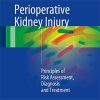Music Therapy Intervention to Treat Sedation-Related Delirium in Critical Care
sciencedirect.comSedation is an essential component of treatment for some patients admitted to the intensive care unit, but it carries a risk of sedation-related delirium. Sedation-related delirium is associated with higher mortality and increased length of stay, but pharmacological treatments for delirium can lead to over-sedation or other adverse effects.
Therefore, non-pharmacological treatments are recommended in the literature; however, these recommendations are quite general and do not provide structured interventions.
To establish a structured non-pharmacological intervention that could improve indications of delirium after sedation, we combined evidence-based interventions including recordings of sensory-rich stories told by the patient’s family and patient-specific music into our novel Positive Stimulation for Medically Sedated Patients (PSMSP) protocol.
The positive listening stimulation playlist organized by a board-certified music therapist (MT-BC) within the PSMSP protocol can be used in carefully monitored sessions with the MT-BC to potentially decrease agitation and stabilize arousal, as well as played by nursing staff throughout the patient’s recovery from sedation.
Further controlled studies will be necessary, but the PSMSP protocol has the potential to reduce agitation and increase arousal during listening, as highlighted by the case of a patient recovering from sedation during treatment for COVID-19 pneumonia.
It is important for the entire critical care team to be aware of non-pharmacological treatments like PSMSP that are available for delirium mitigation so that, where applicable, these therapies can be incorporated into the patient’s treatment regimen.

















